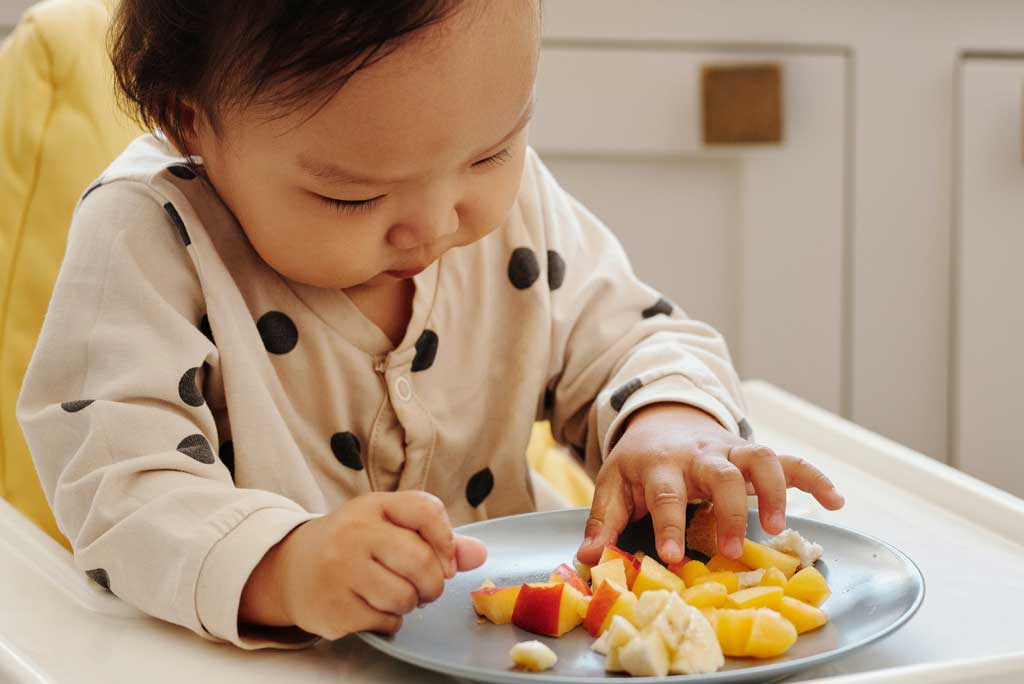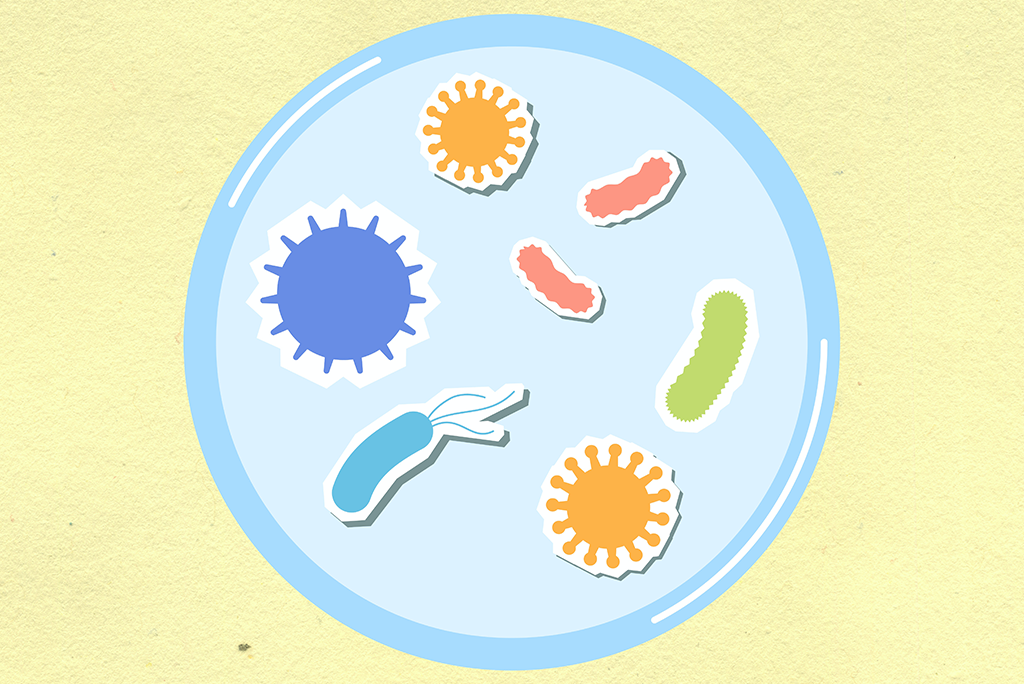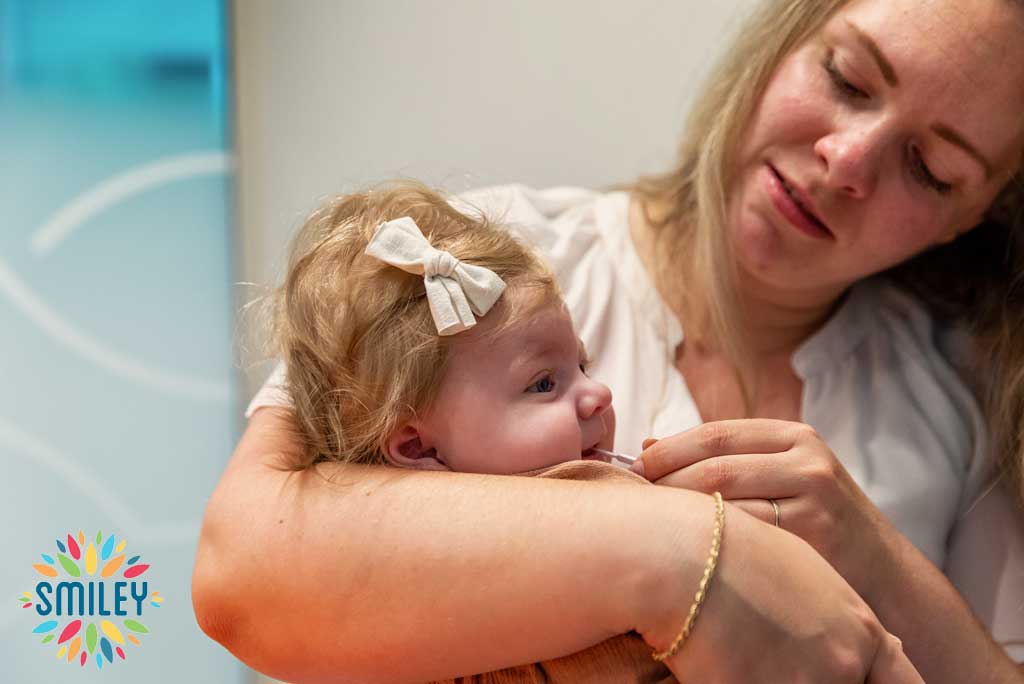Did you know that you carry around 1.5kg of microorganisms with you? Or that there are as many microbes as human cells in and on your body? There are, for example, bacteria, fungi, and viruses in your gut, mouth and on your skin. We call all these different ecosystems of microorganisms together the human microbiota.
What do we know about gut microbiota?
Gut microorganisms can protect us from other invading harmful microorganisms, digest food that we could not digest without them, and shape our immune system. They can even influence our thinking and mental wellbeing by communicating with the brain! Together, this means that the gut microbiota plays a role in physical and also mental diseases. Some of the factors that alter the gut microbiota include diet, antibiotics, delivery mode (natural vs caesarean section), having a pet, where you live, and the microbiota of family and friends. The first years of life appear to be crucial for developing a healthy gut microbiota.


Gut microbiota and early development
Is there something like an optimal microbiota for all human beings? Or is the optimal microbiota different for different people? Which factors contribute to a healthy early microbiota and a disease-free development? At the BRC we are helping to find answers to these questions. We focus mainly on how (early) life factors influence the development of the gut microbiota in relation to stress, mental health and cognition in healthy children.
SMILEY study


Momenteel zijn wij bezig met de SMILEY studie. In dit onderzoek bestuderen we de relatie tussen het welzijn van de moeder en de ontwikkeling van de baby. Daarbij kijken we onder andere naar darm-microbiota (zie video hiernaast)!
Read more?
Hermes, G., Eckermann, H., Vos, W.M., de Weerth, C. (2020). Does entry to center-based childcare affect gut microbial colonization in young infants? Scientific Reports, 10(1):10235.
Zijlmans, M.A.C., Korpela, K., Riksen-Walraven, J.M., de Vos, W.M., de Weerth, C. (2015) Maternal prenatal stress is associated with the infant intestinal microbiota. Psychoneuroendocrinology, 53:233-45.
de Weerth, C., Fuentes, S., Puylaert, Ph., de Vos, W.M. (2013). Intestinal Microbiota of Infants with Colic: Development and Specific Signatures. Pediatrics, 131(2):e550-8.